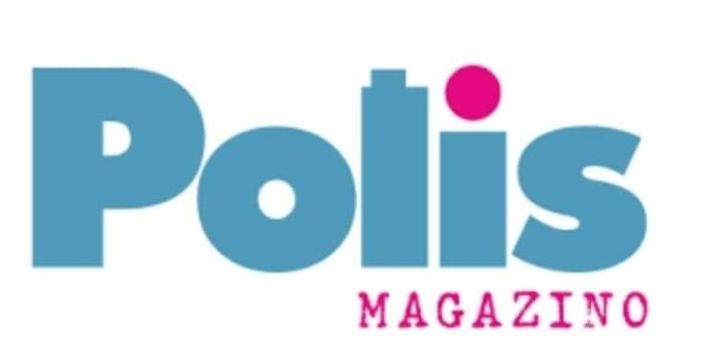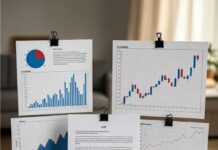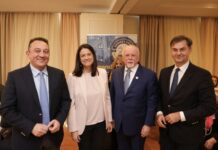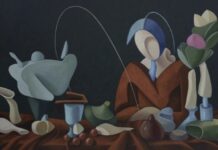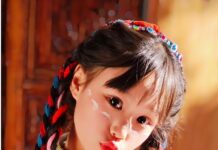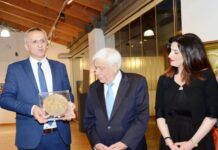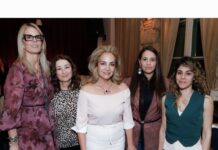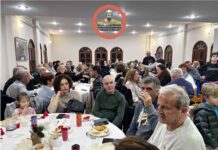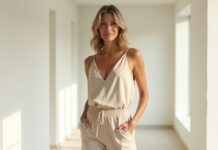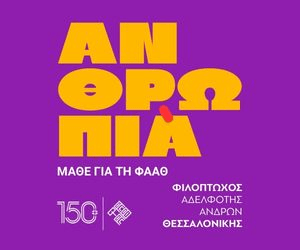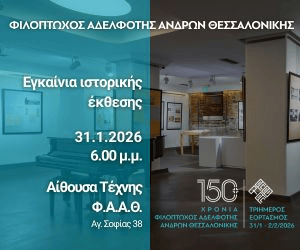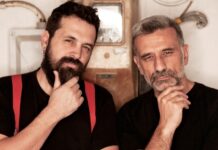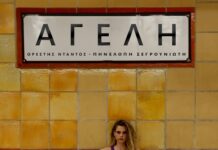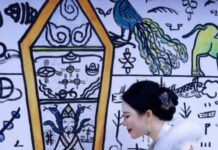Επιμέλεια: Εύα Πετροπούλου Λιανού
Translated by Natalie Giraud
Quechua ripped backpack
A large Carrefour shopping bag full to bursting
I cover the floor with a Darty cardboard
On the platform of this station I made myself a small country
Legs folded
I’m a paper burner
I came from the other side
Here I have respected no borders
Here I am a migrant of the Earth
Exiled
Harraga , Harraga identity
Your Decolonized Daughter
I am the unwanted product
Of a story that you once knitted.
In Châtelet station,
I’m going now,
To live.
(Paris, 23-12-2019)
The Harraga always die in Spring
The bloodstain was no bigger than a mole.
The screams were no heavier than a wheat thorn.
At the end of a long journey we understand that nothing is more difficult than freedom.
Maybe the boat overturned.
Maybe the country is still in an anger of love.
My children
Open your eyes wide to breathe.
Let the lock yawn,
it will be filled with the tears of your moms and loved ones.
Their breasts were no more fertile than a desired land,
Their prayers were no sweeter than burnt jasmine.
My children…
If you are not mourned, it is because the door that held our eyelids does not want to give up.
Grief is never honorable,
Death is never proper,
My children,
The shroud is never big enough for one hundred people…
And, if at the bottom of the water there wasn’t a lot of blood,
That’s because your dreams were so big,
That’s because your dreams were so big.
(Porticcio, 08-09-2016)
To a Sudanese Kurdish woman,
[And the barking of the dogs still echoes in my ears…]
She didn’t want to know for how long her dream had been crashing here.
For how long had she been nothing but dust in the jungle of the faceless. From one accent to another the bridge of death unfolded before her.
Her life in the camp was an unfaithful expectation like those waters that spat her out.
The hold overturned in the sea… the side guards were there.
They placed them,
Nowhere…
Her soul has left the photo in her passport to cling to the thorns of these barbed wire tinged with humanitarian actions.
She escaped again.
She climbed up at night, she bumped into brambles, she scratched her face, she sold her body to make up the difference…
The world shrank as her feet went by.
She walked to the north
She had no right to despair, for herself and for those who drowned.
And, because despair had no right to settle in her belly, she finally arrived at the feet of the land of her dream.
[Then sometimes in my head I walk, I walk again…]
(Istanbul, 21-12-2017)
EXCEPT I DIDN’T HAVE A WINDOW
[At first it was like the sting of the storm, then like the modesty of the stone and finally like the night that fell on his eyes…] .
When a man is in pain, his memories are a mess,
When a woman is in pain, her roads are a fire.
No one holds nobility on a battlefield,
When everyone is down,
The smoke tarnishes the swords and darkens the wounds.
In the dark night a mouth looks for a greedy breast,
Sew on the skin an idyll in bloom ,
As light as time,
As heavy as the figs of words,
As ugly as a scar on a child’s knee,
As beautiful as a mountain in the arms of a lake.
The rose, full of storms, teaches a dance to the links that unchain its stem:
Not being ashamed of your pain is the first step,
Taming your pain is the second step,
Drinking his pain to the point of overflowing is the most capricious of steps.
There is no life that remains intact,
There is no death that promises to be perfect,
Often joy is built on the surface of life,
But to engage in the pain of happiness you have to leave on a journey…
[At the end it was like a forgotten address, then like a weakened mourning and finally like the reflection that was lost on the dock of the years].
THE DEATH OF A HAPPY WOMAN
At the time when your Nakba 1 is worn between the folds of your sex,
Your story is that of a doll, trapped in the nets of an unloved hunter.
At a time when my sisters are still climbing out the window not to marry their captors,
Your story is that of a mermaid,
Bitten on the foot by a hungry devil.
ӿ ӿ ӿ ӿ ӿ ӿ
Open the matchbox,
You’ll see that things aren’t so well done.
But you, you, you, you were born as a woman, you don’t have to justify yourself,
You were born as a woman and from now on none of your days will be the same as your other days.
ӿ ӿ ӿ ӿ ӿ ӿ
You will grow up, happiness you will peel it,
You will get married and have many children.
ӿ ӿ ӿ ӿ ӿ ӿ
For the rest, don’t forget it,
Pack your skin, it’s the law.
And if you want to tune your steps to the sound of your voice,
All you have to do is to grasp Fatma’s hand.
1 Word in Arabic literally meaning “disaster” but used here according to the Tunisian dialect where the word “Nakba” means “an irreversible misfortune”.
Imèn MOUSSA: tunisian writer, holds a PhD in French and Comparative Literature. She is the co-founder of Rencontres Sauvages de la Poésie in Paris and former editor-in-chief of Trait-d’Union Magazine Algérie. An independent researcher, she focuses her work on women’s writing in the contemporary Maghreb. Her texts and travels #around the world are invitations to envision a Humanity “beyond borders.” In this spirit, she collaborates as both a writer and photographer in several artistic journals and collective publications across Africa, Europe, North America, Asia, and Latin America.
She is the author of two essays: Gender and the Emancipation of Women in the Contemporary Maghreb, published by Le Manuscrit, Paris, 2023, and Representations of the Feminine in the Works of Maïssa BEY, European Academic Publishing, 2019. In 2020, she also published a poetry collection titled A Root Had to Be Elsewhere, with L’Harmattan, Paris, followed by Our Visible Seams, published by Constellations, Brive, in 2024. Her poetry has been translated into English, Italian, and Mandarin.
In recognition of her body of poetic work, she was awarded the International Dina Sahyouni Literary Prize in 2023 and again in 2024 in Grenoble by the International Society for Women’s and Gender Studies in Poetry (SIÉFÉGP).
